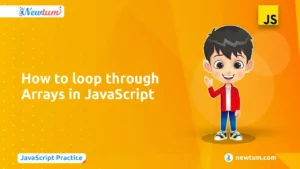“Parentheses and Braces in C++” might seem like small characters, but they’re pretty mighty in the coding world! They keep your programs organised, help structure decision-making, and ensure the logic flows beautifully. Whether you’re just dipping your toes into C++ or you’re keen to polish your skills, understanding these little helpers is crucial. Stick around, as we’ll break down their roles, show you how to use them effectively, and sprinkle in some handy coding tips along the way.
What is Parentheses ()
Parentheses play a vital role in structuring logic and function behavior in C++. Here’s how they are typically used:
Function Calls and Declarations
- Parentheses are mandatory when calling or declaring functions.
void greet() {
cout << "Hello, world!";
}
int main() {
greet(); // function call with ()
}- Even if a function takes no arguments,
()is still required in both declaration and usage.
Conditions in Control Statements
- Parentheses are used to wrap the condition in statements like
if,while, andfor.
if (x > 0) {
// do something
}
while (count < 10) {
// loop body
}
for (int i = 0; i < 5; i++) {
// loop logic
}
⚠️ Common Mistakes
- Forgetting to close a parenthesis:
if (x > 0 // ❌ Missing closing ) - Using parentheses in place of braces for blocks:
if (x > 0) (cout << "Positive"); // ❌ Not a valid block
What is Braces {}
Braces define blocks of code and determine the scope of execution in C++. They are essential for readability and logic control.
🔹 Code Blocks for Functions, Loops, and Conditionals
- Braces are required to wrap multiple statements in a function or control structure.
void showMessage() {
cout << "Start\n";
cout << "End\n";
}
if (x > 5) {
cout << "Greater than 5";
x--;
}🔹 Controlling Execution Scope
- Braces help group statements to execute together. Without them, only the next immediate line is considered part of the block.
if (x > 0)
cout << "Positive\n";
x--; // ❌ Always executes, not part of the if-block
⚠️ Common Pitfalls
- Omitting braces in multi-line blocks:
When braces are left out, developers assume multiple lines are part of the condition, but only one actually is. - Confusing indentation with scope:
Indentation doesn’t define logic — braces do.
Using Parentheses and Braces
cpp
#include
int main() {
// Using parentheses for arithmetic operations
int a = 5;
int b = 3;
int c;
c = (a + b) * (a - b);
std::cout << "Result of (a + b) * (a - b) is: " << c << std::endl;
// Using braces to define the scope of variables
{
int x = 10;
std::cout << "Value of x is: " << x << std::endl;
}
// x is not accessible here
return 0;
}
Explanation of the Code
The provided C++ code demonstrates the use of parentheses and braces, which are fundamental in programming for both operations and scope management. Let’s break it down step by step:
- The code starts by including the iostream library, which is essential for input and output operations.
- Next, the main function is defined. Inside, three integers, ‘a’, ‘b’, and ‘c’, are declared, with ‘a’ and ‘b’ being initialised.
- Parentheses are used in the expression ‘(a + b) * (a – b)’ to ensure the right order of operations, first calculating ‘a + b’ and ‘a – b’ before multiplying them. This calculated value is then stored in ‘c’.
- The same portion shows how the ‘std::cout’ command is used to print the result to the console.
- Braces are utilised to define a scope where ‘x’ is declared and printed. This ensures ‘x’ is limited to the defined block, showcasing variable scoping use.
Output
Result of (a + b) * (a - b) is: 16
Value of x is: 10Real-World Examples of Errors
Understanding how small syntax mistakes can lead to logical bugs is crucial. Below are some common real-world errors involving parentheses and braces in C++.
Missing Braces in if-else Blocks
When braces are omitted, only the first statement is considered part of the conditional, leading to unintended behavior.
if (x > 0)
cout << "Positive";
x--; // This line executes regardless of the condition
Correct:
if (x > 0) {
cout << "Positive";
x--;
}
Incorrect Nesting of Braces and Parentheses
Improper pairing of {}, (), or both can cause compilation errors or logic issues.
if ((x > 0) {
cout << "Positive"; // Syntax error: mismatched ()
}
Correct:
if (x > 0) {
cout << "Positive";
}
Unexpected Results Due to Poor Indentation
Indentation may suggest a block structure, but C++ relies only on braces for scope control.
if (x < 10)
cout << "Small\n";
cout << "Still running\n"; // Always executes
Correct:
if (x < 10) {
cout << "Small\n";
cout << "Still running\n";
}
Best Practices to Follow
To avoid these pitfalls and write clean, maintainable C++ code, follow these best practices:
Always Use Braces, Even for One-Liners
Even when only one statement is inside an if, for, or while block, always include braces for clarity and future-proofing.
if (x > 0) {
cout << "Positive";
}
Indentation and Formatting Tips
- Match indentation to reflect logical blocks, but don’t rely on it for control.
- Use consistent spacing and tab width (2 or 4 spaces is common).
- Use newline breaks after opening braces and before closing braces for readability.
Rely on IDE or Compiler Warnings
- Enable all warnings in your compiler (
-Wallfor GCC/Clang). - Use IDEs like Visual Studio, CLion, or VSCode that offer real-time syntax checking.
- Consider integrating static analysis tools or linters to catch brace mismatches early.
Using Parentheses and Braces in Real-Life C++ Coding Scenarios
- Automobile Industry – Navigation Systems: Leading car manufacturers use C++ in their vehicle’s navigation systems. The code often involves numerous loops and decision-making processes, where parentheses ensure the accuracy of calculations required for responsive, real-time navigation suggestions. The proper use of parentheses and braces ensures that each operation is processed in the intended order, thereby enhancing route calculation precision.
- Gaming Sector – Graphics Rendering: Game development companies frequently utilize C++ for graphics rendering due to its speed and performance capabilities. Developers leverage parentheses and braces extensively to control the flow of rendering functions and logic in the shaders. This precision ensures smooth graphics updates and responsive gameplay.
- Financial Services – Algorithmic Trading: C++ is popular in financial services for algorithmic trading platforms because it offers low latency. The correct use of parentheses and braces is crucial in these applications for maintaining precise trade execution sequences. A misplaced bracket could trigger different trade paths, which emphasises the importance of syntactical accuracy.
- Our AI-powered cpp online compiler lets users seamlessly write, run, and test code instantly. This smart tool harnesses AI capabilities, simplifying your coding process. It’s perfect for both beginners and seasoned programmers, streamlining code execution and debugging for efficient learning and development. Dive into hassle-free coding today!
Quick Fix Checklist
Use this checklist to avoid common mistakes with parentheses and braces in your C++ code:
- Always double-check opening and closing brackets
Ensure every(has a matching)and every{has a matching}. - Use linters or tools like Clang-Tidy
These tools can catch unmatched or misplaced brackets and improve overall code quality. - Practice with mini code snippets
Write small functions and control structures to get comfortable using parentheses and braces correctly. - Avoid relying on indentation for logic
Always use braces to define scope, even if the indentation looks correct. - Turn on all compiler warnings
Enable warnings like-Wallto catch potential syntax issues during compilation.
Conclusion
Completing “Parentheses and Braces in C++” unlocks a world of programming clarity and precision. It’s an achievement that boosts your coding confidence. Dive deeper into programming with Newtum for more insights into languages like Java, Python, C, and more. Get started and watch your skills flourish!
Edited and Compiled by
This article was compiled and edited by @rasikadeshpande, who has over 4 years of experience in writing. She’s passionate about helping beginners understand technical topics in a more interactive way.



